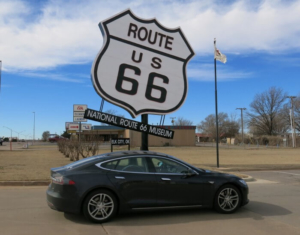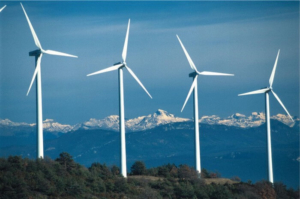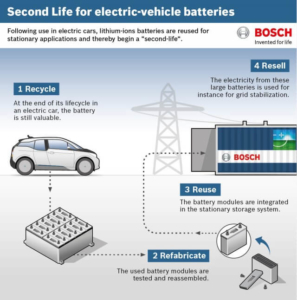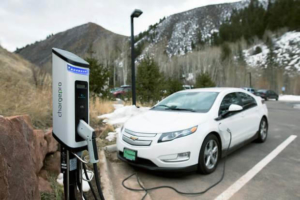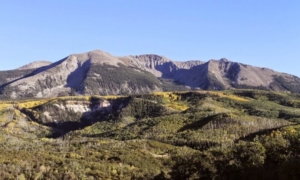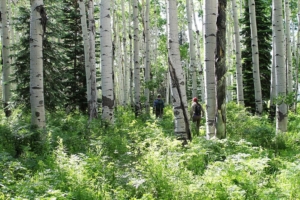Written by Sophia Guerrero-Murphy
This November, our ballots will be full of measures for voters to weigh in on. One of these – Amendment 74 – is an attempt by special interests to turn local decision making on its head.
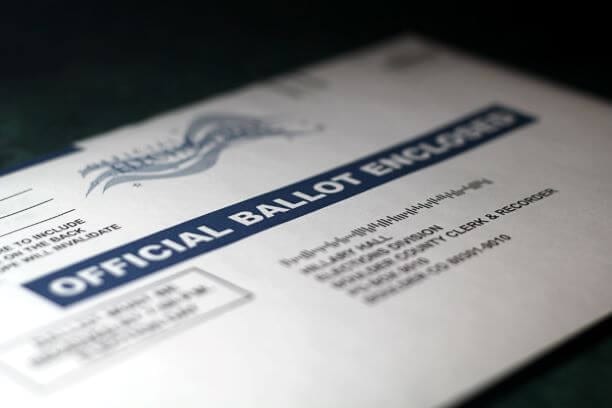 Amendment 74 would allow any property holder, including corporations, to sue local and state governments over any regulation, from city planning to basic health and safety protections.
Amendment 74 would allow any property holder, including corporations, to sue local and state governments over any regulation, from city planning to basic health and safety protections.
For the sake of protecting the Colorado we love, we cannot let this dangerous amendment pass.
What does it do?
The amendment is written to be purposely confusing and dangerously broad. Under the guise of protecting property rights, it would require the government – the taxpayers – to compensate property owners, including corporate interests and industry, for any decrease in the value of their property – including loss of profits – due to any government law or regulation. The cost of paying out the industries and special interests when enforcing codes and laws will eventually make enforcing even the most straightforward regulations too expensive. In short, it destroys the ability of local leaders to make decisions about what their communities look like.
This measure is unnecessary, too extreme, too broad, and was created by and for special interests.
→ It’s unnecessary because the Colorado Constitution already protects private property owners; it doesn’t allow private property to be taken for public use without compensation.
→ This ballot measure would expand part of our Constitution in a way that is incredibly broad and would have sweeping effects on local governments and communities across the state. By requiring local governments to compensate corporate interests, Amendment 74 seeks to make any regulation too expensive to implement.
→ The motive of this measure is clear: it’s paid for by oil and gas companies because it would give them complete freedom over where and how they do business.
Here are three ways that Amendment 74 would hurt Coloradans:
1) Amendment 74 puts industry over people.
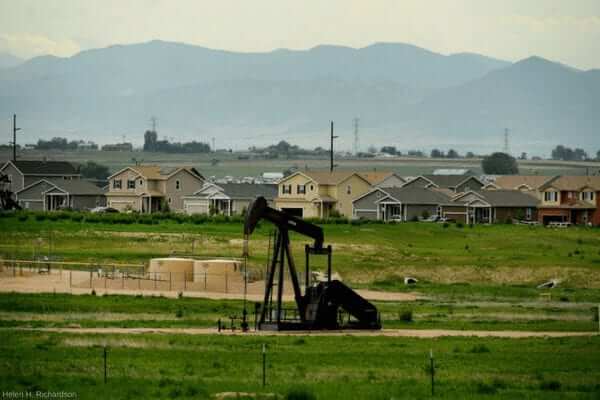 While you won’t find any mention of oil and gas in the measure itself, Amendment 74 was written to prevent local governments from limiting oil and gas drilling in any way. Cloaked in language that would have you believe that all Coloradans’ property rights would be strengthened under this measure, Amendment 74 is exclusively backed by oil and gas companies. Protect Colorado, a front group created by the state’s largest oil and gas companies, has raised a staggering $13 million so far in support of 74. Its top three contributors – Anadarko Petroleum, Extraction Oil and Gas, and Noble Energy – each donated more than $2 million to the cause.
While you won’t find any mention of oil and gas in the measure itself, Amendment 74 was written to prevent local governments from limiting oil and gas drilling in any way. Cloaked in language that would have you believe that all Coloradans’ property rights would be strengthened under this measure, Amendment 74 is exclusively backed by oil and gas companies. Protect Colorado, a front group created by the state’s largest oil and gas companies, has raised a staggering $13 million so far in support of 74. Its top three contributors – Anadarko Petroleum, Extraction Oil and Gas, and Noble Energy – each donated more than $2 million to the cause.
So, what’s in it for them?
If an oil and gas company wanted to drill near a hospital, school, or nursing home but was blocked by zoning laws, the company could sue the government for preventing them from making a profit. If this happened, the government would have to either pay the company or waive the zoning law. In most situations, city, county, and state governments would not be able to afford the payoff, so they would be forced to allow the company to drill wherever it wanted.
The scariest part of Amendment 74 is how broad it is. Far beyond allowing the oil and gas industry to ignore policies designed to protect public health, it could:
 Allow gun shops, strip clubs, and marijuana stores to be built near schools despite neighborhood or family concerns;
Allow gun shops, strip clubs, and marijuana stores to be built near schools despite neighborhood or family concerns;- Allow industrial activities to be located right beside nursing homes, daycares, and hospitals;
- Undo noise regulations that ensure we all get a good night’s sleep;
- Undermine local decisions on landfills and hazardous waste storage, allowing them to be located virtually anywhere;
- Get rid of public health standards governing restaurants, tattoo parlors, or hospitals;
- Hurt safety rules like fire and building codes.
2) Expensive for taxpayers.
Measures similar to Amendment 74 that were passed in other states show just how burdensome it would be to Coloradans. By forcing local governments, like cities and counties, to pay individuals who “suffered any burden” as a result of a regulation, these measures were prohibitively expensive to governments and taxpayers.
 Over a three-year period in Oregon, a measure similar to 74 resulted in the filing of nearly 7,000 claims requesting a total of $19.8 billion in compensation. Faced with such a massive payment, cash-strapped governments were forced to waive rules for nine out of ten claims. This benefited agribusiness, developers, and extractive industries at the expense of taxpayers.
Over a three-year period in Oregon, a measure similar to 74 resulted in the filing of nearly 7,000 claims requesting a total of $19.8 billion in compensation. Faced with such a massive payment, cash-strapped governments were forced to waive rules for nine out of ten claims. This benefited agribusiness, developers, and extractive industries at the expense of taxpayers.
If Amendment 74 passes, the power of our state and local governments will be strangled. We rely on our local governments to listen to community members and plan for the future of our neighborhoods. They do this in open meetings with public input to balance the needs of all residents. That long-held, trusted process would be upended under this measure.
3) Threatens the property rights of most landowners.
 Under Amendment 74, Colorado landowners will suffer. Despite what proponents of 74 claim, waiving regulations would weaken, not strengthen, property owners’ rights. Since property values go down when an undesirable development – like a landfill – is planned near a community, one unregulated property owner has the potential to harm the property values of many.
Under Amendment 74, Colorado landowners will suffer. Despite what proponents of 74 claim, waiving regulations would weaken, not strengthen, property owners’ rights. Since property values go down when an undesirable development – like a landfill – is planned near a community, one unregulated property owner has the potential to harm the property values of many.
This also happened in Oregon, where property owners could only sit and watch as an 80-acre gravel mine was built next to family ranches, 150 vacation homes were put up in a national monument, and subdivisions tore up agricultural land. As these landowners learned, waiving land-use rules not only generally damaged property values, it pitted neighbor against neighbor and put a stranglehold on local decision making. Two years after it passed, Oregon residents opposed the 74-like measure by nearly two to one.
With all the attacks on our environment occurring at the national level, it’s easy to lose track of the local ballot issues that Coloradans will be voting on this November. But this year, not paying attention could be dangerous.
Amendment 74 is not a measure about protecting private property rights. No, the purpose of this initiative is to bankrupt any local and state government that tries to regulate the oil and gas industry. It poses an unprecedented threat to our communities, our environment, and our way of life.
See Amendment 74 for what it is – a measure to deregulate and debilitate – and vote NO.


 A mid-term appointment, Representative Dylan Roberts filled the seat of conservation champion Representative Diane Mitsch Bush when she decided to run for Congress. He got off to a great start with a focus on protecting our water, advancing rural economic development, and
A mid-term appointment, Representative Dylan Roberts filled the seat of conservation champion Representative Diane Mitsch Bush when she decided to run for Congress. He got off to a great start with a focus on protecting our water, advancing rural economic development, and 

 There doesn’t seem to be a pressing West Slope issue that Senator Kerry Donovan won’t take on. From
There doesn’t seem to be a pressing West Slope issue that Senator Kerry Donovan won’t take on. From  Investing in transportation for all Coloradans. After two years of fighting, we notched a huge victory in passing SB 001, a bipartisan bill that includes major investments in transportation options like senior and disability buses, sidewalks for pedestrians, highway shoulders for tractors, and resources to keep everyone safe. It is a step towards funding our state’s massive transportation needs in a fiscally responsible manner, and it supports a system that will benefit all Coloradans. With 2.5 million more people expected to live in Colorado in the next 25 years, these options are more important than ever to combat congestion and improve air quality. While we believe additional revenues are needed to address all our transportation needs, this bill provides critical initial investments to move us forward.
Investing in transportation for all Coloradans. After two years of fighting, we notched a huge victory in passing SB 001, a bipartisan bill that includes major investments in transportation options like senior and disability buses, sidewalks for pedestrians, highway shoulders for tractors, and resources to keep everyone safe. It is a step towards funding our state’s massive transportation needs in a fiscally responsible manner, and it supports a system that will benefit all Coloradans. With 2.5 million more people expected to live in Colorado in the next 25 years, these options are more important than ever to combat congestion and improve air quality. While we believe additional revenues are needed to address all our transportation needs, this bill provides critical initial investments to move us forward. Renewing funding to protect our public lands. A massive funding stream for Colorado’s outdoors was reauthorized through Colorado’s lottery! This dedicates funding for parks, open spaces, and outdoor recreation in all 64 counties of Colorado. This bill (SB 066) will help boost local projects to protect our outdoors.
Renewing funding to protect our public lands. A massive funding stream for Colorado’s outdoors was reauthorized through Colorado’s lottery! This dedicates funding for parks, open spaces, and outdoor recreation in all 64 counties of Colorado. This bill (SB 066) will help boost local projects to protect our outdoors.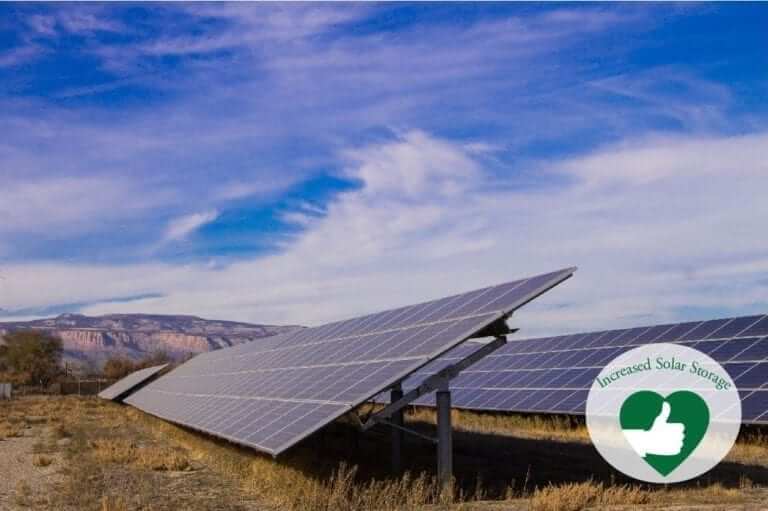 Advancing renewable energy through storage. Energy storage is an essential companion to renewables that will enable a clean energy future. Two bills tackled this need (SB 009 and HB 1270). SB 009 declares that power customers have a right to install, interconnect, and use energy storage systems, making sure that homeowners can store their renewable energy, while HB 1270 directed the Public Utilities Commission to consider storage in as utilities make plans for future energy sources.
Advancing renewable energy through storage. Energy storage is an essential companion to renewables that will enable a clean energy future. Two bills tackled this need (SB 009 and HB 1270). SB 009 declares that power customers have a right to install, interconnect, and use energy storage systems, making sure that homeowners can store their renewable energy, while HB 1270 directed the Public Utilities Commission to consider storage in as utilities make plans for future energy sources. Conserving Colorado’s water. We helped pass three bills to allow reused water for flushing toilets (HB 1069), growing hemp (SB 038), and farming edible crops (HB 1093)! “Reuse” water is when water is used for one purpose, say to wash dishes, and then treated to a safe standard to be used again, like to water a garden. When a water provider is able to use the same water multiple times, it means more demands can be met without increasing their overall water consumption. Reusing water helps conserve our limited water resources, and these bills will save thousands of gallons a year.
Conserving Colorado’s water. We helped pass three bills to allow reused water for flushing toilets (HB 1069), growing hemp (SB 038), and farming edible crops (HB 1093)! “Reuse” water is when water is used for one purpose, say to wash dishes, and then treated to a safe standard to be used again, like to water a garden. When a water provider is able to use the same water multiple times, it means more demands can be met without increasing their overall water consumption. Reusing water helps conserve our limited water resources, and these bills will save thousands of gallons a year.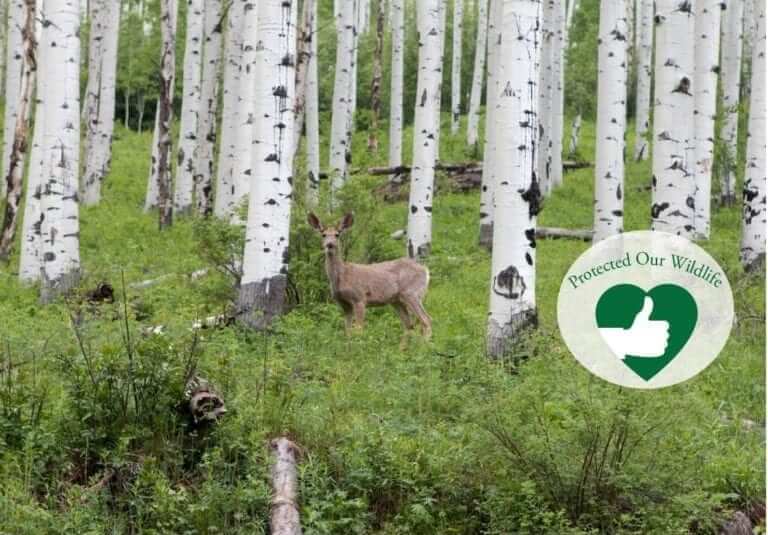 Protecting state parks and wildlife. Coloradans depend on Colorado Parks and Wildlife to deliver on its mission and ensure future generations have access to the recreational opportunities available today. SB 143 allows CPW to prevent budget shortfalls and meet its goals by increasing user fees and adjusting them to keep pace with inflation.
Protecting state parks and wildlife. Coloradans depend on Colorado Parks and Wildlife to deliver on its mission and ensure future generations have access to the recreational opportunities available today. SB 143 allows CPW to prevent budget shortfalls and meet its goals by increasing user fees and adjusting them to keep pace with inflation.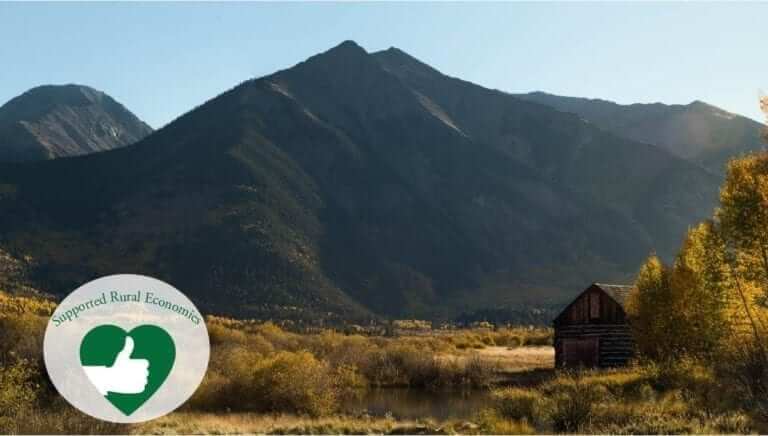 Supporting rural communities. Two bills were passed this year: first, the Rural Economic Advancement of Colorado Towns (REACT) Act aims to provide assistance to rural towns that have experienced significant economic shifts such as industry closure. This bill (SB 005) will help make sure our rural communities have support from the state of Colorado as they face transitions, often related to the shift to clean energy. Second, SB 002 adds funding for increasing broadband to rural areas across Colorado. Currently, many rural communities do not have access to broadband internet, or if they do, its poor and unreliable quality. Rural communities deserve high-speed, functional infrastructure so their opportunities to earn a good life are not limited.
Supporting rural communities. Two bills were passed this year: first, the Rural Economic Advancement of Colorado Towns (REACT) Act aims to provide assistance to rural towns that have experienced significant economic shifts such as industry closure. This bill (SB 005) will help make sure our rural communities have support from the state of Colorado as they face transitions, often related to the shift to clean energy. Second, SB 002 adds funding for increasing broadband to rural areas across Colorado. Currently, many rural communities do not have access to broadband internet, or if they do, its poor and unreliable quality. Rural communities deserve high-speed, functional infrastructure so their opportunities to earn a good life are not limited.
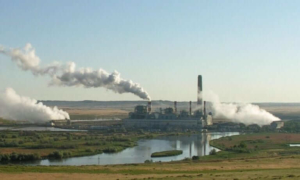 Methane, a potent greenhouse gas, leaks from oil and gas sites across the country, wasting taxpayer dollars and exacerbating climate change. The Bureau of Land Management’s Methane Rule established commonsense standards that require oil and gas companies to deploy readily available, cost-effective measures to reduce methane lost through venting, flaring, and leaks. While the rule itself is still in question, there’s no doubt that Sen. Gardner went against the wishes of most Coloradans and voted to repeal the rule.
Methane, a potent greenhouse gas, leaks from oil and gas sites across the country, wasting taxpayer dollars and exacerbating climate change. The Bureau of Land Management’s Methane Rule established commonsense standards that require oil and gas companies to deploy readily available, cost-effective measures to reduce methane lost through venting, flaring, and leaks. While the rule itself is still in question, there’s no doubt that Sen. Gardner went against the wishes of most Coloradans and voted to repeal the rule.